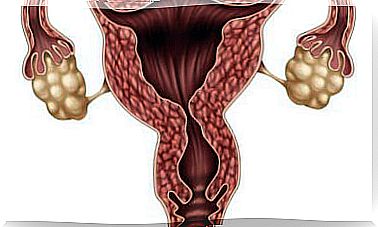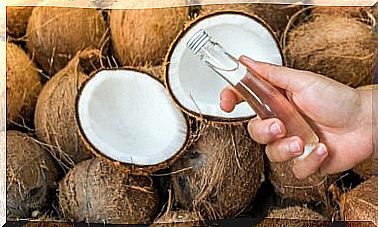Can You Give Breast Milk And Formula In The Same Bottle?
Giving a baby breast milk and formulating it in the same bottle can be favorable for feeding. However, there are some factors to consider before opting for mixed breastfeeding.
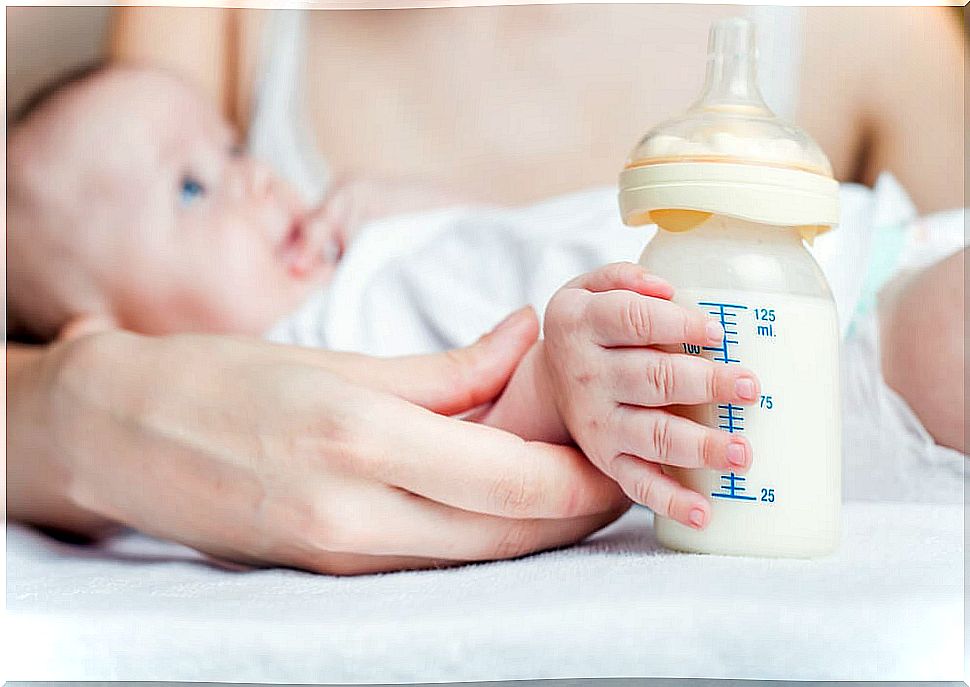
Sometimes it is necessary to combine breast milk and formula in the same bottle to complete the baby’s feeding. This practice is known as mixed breastfeeding.
Although new mothers may have doubts about this practice, the truth is that the mixture of these two types of milk does not necessarily have to be harmful in any case.
Although it is permissible to mix both milks, it is better to give the baby first one and then the other. This is for a very important reason, breast milk is a unique and crucial food source for your health and development. It is rich in several nutrients and this is more than proven by Health experts, who indicate the following:
How to know if the baby is ingesting the necessary amount of breast milk?

These are some of the signs that will let you know if your baby is taking all the breast milk he needs:
- When your baby is less than 1 month old, you are breastfeeding him and he has a mustard-colored stool regularly.
- If you soak 6 or 8 diapers a day, you are consuming the necessary amount of breast milk.
- During the first month after your baby is born, you should breastfeed 8 to 12 times a day. If you meet that quota or at least come close, then you are producing enough breast milk for your baby.
Believe it or not, your baby will cry even when he is well fed. Therefore, there will be times when his crying does not indicate that he is hungry or that you have not fed him, but simply wants to be in contact with his mother.
When do you need to mix breast milk and formula?
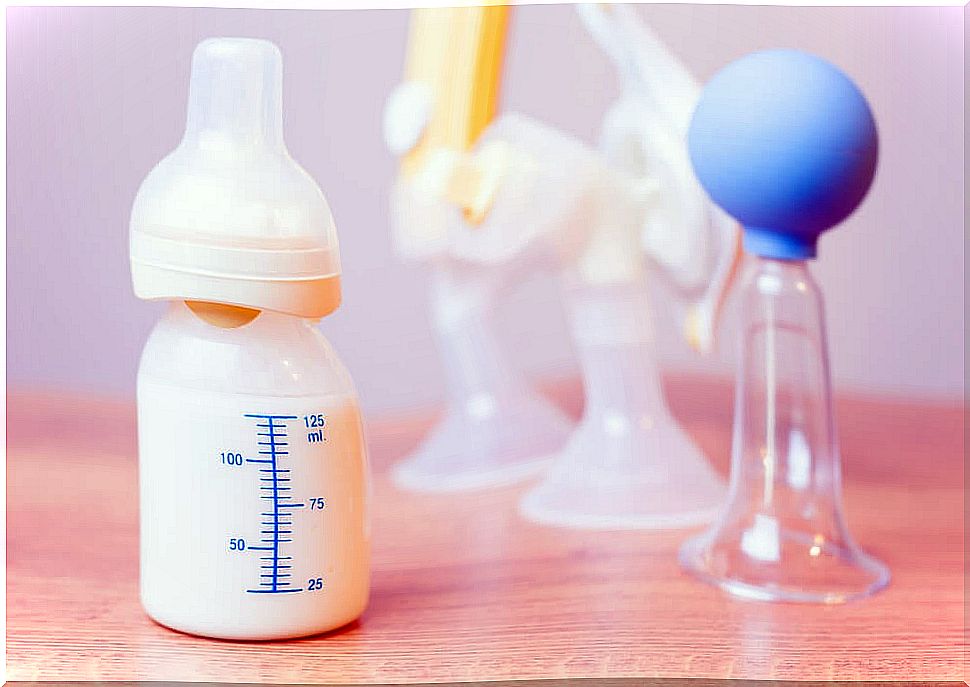
If you notice that your baby has a weight, growth or feeding rhythm that is very different from the rest of the babies, it is best to take him to the pediatrician.
Some situations for which you should go to the specialist:
- If you notice that your baby is losing too much weight. At birth, it is normal for babies to lose a little weight. However, on the fifth day they should start to get it back again, increasing by at least 1 ounce per day.
- If your baby is too fussy or too still most of the time. Either extreme is not healthy.
- If your baby does not wet at least 6 diapers a day.
It is best to wait at least the first month of your baby’s life to start supplementing his diet between breast milk and formula.
Experts point out that this time should be waited for the baby to have a feeding habit and the mother to establish a good production of breast milk.
How will the baby respond if you decide to give both breast milk and formula in the same bottle?
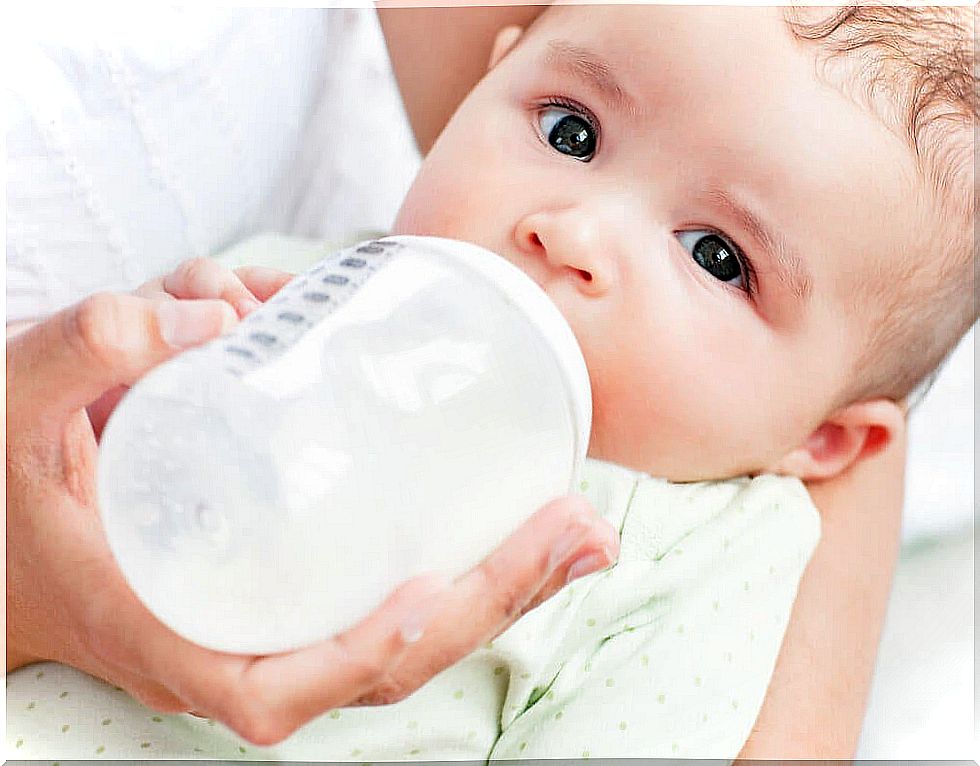
If you start giving breast milk and formula in the same bottle, the first thing that can happen is that your baby begins to refuse to drink breast milk. Suckling from the bottle means a lot less effort for your baby than sucking on your breast.
Formula flows much faster and more through the bottle. Which means that if your baby is a “glutton”, he will definitely prefer to drink from the bottle. Another important change that you will begin to notice is that you will no longer need to eat as often.
You will be full after drinking breast milk and formula. This happens because formula milk takes much longer to digest than breast milk. What will also change is the color of your baby’s defecation, from mustard color it will change to a darker tone. In addition, it will have a stronger smell.
Also, your baby will defecate less regularly. You should pay attention if your baby begins to vomit or defecate with some blood, after having mixed breast milk with formula in his bottle. In this case, take it to the specialist as soon as possible.
Consult your pediatrician for more information
So, can you give breast milk and formula in the same bottle? Yes, but it is advisable to consult with the pediatrician and assess the case before making the decision.
Additionally, it would be advisable to consult and contrast with the professional the scientific evidence that exists regarding the role of the type of milk in the physical and cognitive development of the baby.



